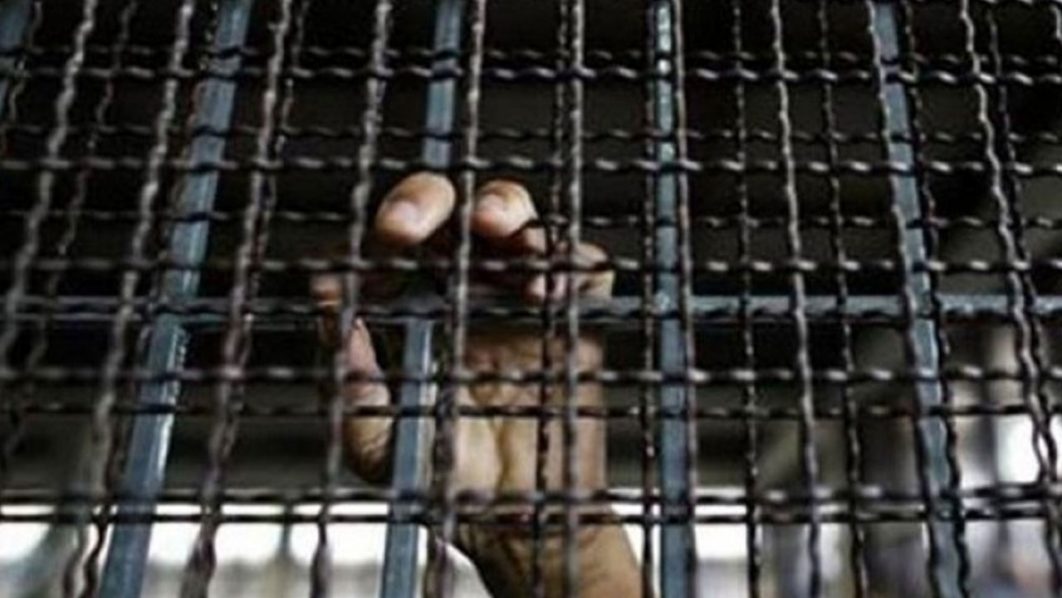
Jailed former South Korean president Lee Myung-bak was granted bail on Wednesday, nearly a year after he was arrested over corruption charges.
The CEO-turned president, who served from 2008 to 2013, was found guilty on charges including bribery and embezzlement and sentenced to 15 years in prison last October.
Lee appealed the decision and in January made a request for bail, citing old age and potential health complications from diabetes and sleep apnea.
The Seoul High Court approved his request for bail on Wednesday but said its decision was based on legal restrictions around detaining Lee during the ongoing appeals process, rather than his ill health.
Lee’s arrest warrant expires on April 8 and raises the risk of Lee tampering with evidence during an ongoing appeals trial, the court said, adding it decided to put him under “home confinement with strict conditions”.
“The conditional release will serve to maintain the effect of the arrest warrant and the defendant can always be detained again in case of any infraction,” the court said in a statement.
The conditions of Lee’s 1 billion won (US$886,000) bail strictly confines him to his residence in southern Seoul and limits his interaction to immediate family members and legal representatives.
“I fully understand (the conditions),” Lee was cited as saying by Yonhap news agency.
“I never approached the witnesses even before the arrest,” he said, adding: “I draw a strict line between private and public matters.”
Television footage showed Lee, dressed in a dark suit, walking out from the detention centre, before getting into a black sedan and driving out past a small group of aides and supporters.
Lee was found guilty of creating slush funds of tens of millions of dollars and accepting bribes from Samsung Electronics in return for a presidential pardon for its chairman Lee Kun-hee, who was jailed for tax evasion.
The conservative politician has denied wrongdoing and labelled the allegations as “political revenge”.
South Korean presidents have a tendency to end up in prison after their time in power, usually, once their political rivals have moved into the presidential Blue House.
All four of South Korea’s living presidents have been convicted of criminal offences but Lee is the first former leader to be granted bail.
Lee’s successor, Park Geun-hye, was sentenced to 25 years in prison and fined millions of dollars for bribery and abuse of power.
She was ousted in 2017 over a nationwide corruption scandal that prompted massive street protests.
(AFP)
The CEO-turned president, who served from 2008 to 2013, was found guilty on charges including bribery and embezzlement and sentenced to 15 years in prison last October.
Lee appealed the decision and in January made a request for bail, citing old age and potential health complications from diabetes and sleep apnea.
The Seoul High Court approved his request for bail on Wednesday but said its decision was based on legal restrictions around detaining Lee during the ongoing appeals process, rather than his ill health.
Lee’s arrest warrant expires on April 8 and raises the risk of Lee tampering with evidence during an ongoing appeals trial, the court said, adding it decided to put him under “home confinement with strict conditions”.
“The conditional release will serve to maintain the effect of the arrest warrant and the defendant can always be detained again in case of any infraction,” the court said in a statement.
The conditions of Lee’s 1 billion won (US$886,000) bail strictly confines him to his residence in southern Seoul and limits his interaction to immediate family members and legal representatives.
“I fully understand (the conditions),” Lee was cited as saying by Yonhap news agency.
“I never approached the witnesses even before the arrest,” he said, adding: “I draw a strict line between private and public matters.”
Television footage showed Lee, dressed in a dark suit, walking out from the detention centre, before getting into a black sedan and driving out past a small group of aides and supporters.
Lee was found guilty of creating slush funds of tens of millions of dollars and accepting bribes from Samsung Electronics in return for a presidential pardon for its chairman Lee Kun-hee, who was jailed for tax evasion.
The conservative politician has denied wrongdoing and labelled the allegations as “political revenge”.
South Korean presidents have a tendency to end up in prison after their time in power, usually, once their political rivals have moved into the presidential Blue House.
All four of South Korea’s living presidents have been convicted of criminal offences but Lee is the first former leader to be granted bail.
Lee’s successor, Park Geun-hye, was sentenced to 25 years in prison and fined millions of dollars for bribery and abuse of power.
She was ousted in 2017 over a nationwide corruption scandal that prompted massive street protests.
(AFP)
In this article:
